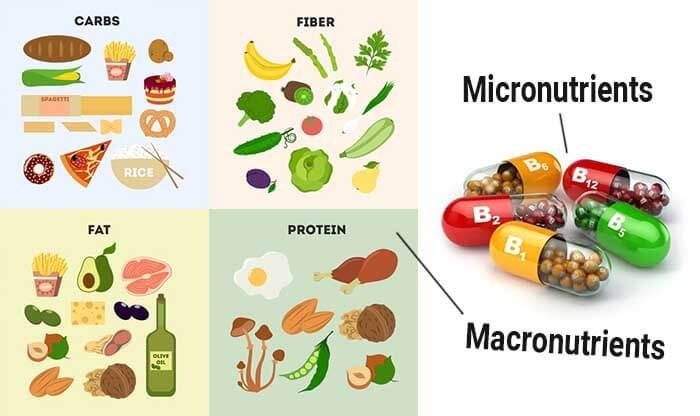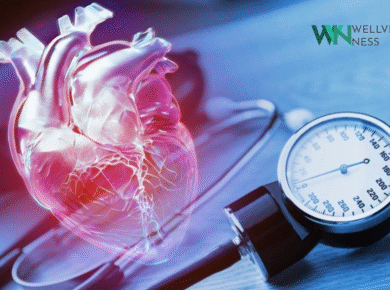Introduction to Nutrition
Table of Contents
Nutrition is a fascinating and complex subject. It’s about what we eat and how our bodies use it. But it’s also about much more than that. It’s about health, vitality, and the energy to live a full and active life.
The Basics of Nutrition
What is Nutrition?
Nutrition is the science of food and how our bodies use it. It’s about the nutrients in our food – the vitamins, minerals, carbohydrates, fats, and proteins – and how our bodies break them down and use them to function.
Why is Nutrition Important?
Good nutrition is essential for good health. It helps our bodies grow, repair themselves, and function properly. It can also help prevent and manage health problems like heart disease, diabetes, obesity, and cancer.
The Building Blocks of Nutrition
Carbohydrates
Carbohydrates are the body’s main source of energy. They’re found in foods like bread, pasta, rice, and potatoes. There are two types of carbohydrates: simple and complex. Simple carbohydrates, like sugar, are quickly broken down by the body. Complex carbohydrates, like whole grains, take longer to break down and provide a steady source of energy.
Proteins
Proteins are essential for growth and repair. They’re found in foods like meat, fish, eggs, and dairy products. There are two types of proteins: complete and incomplete. Complete proteins, like those found in animal products, contain all the essential amino acids. Incomplete proteins, like those found in plant foods, lack one or more essential amino acids.
Fats
Fats are a concentrated source of energy. They’re found in foods like butter, oil, and fatty meats. There are two types of fats: saturated and unsaturated. Saturated fats, like those found in animal products, can raise cholesterol levels. Unsaturated fats, like those found in plant oils, can lower cholesterol levels.
Vitamins and Minerals
Vitamins and minerals are essential for good health. They’re found in a wide variety of foods. Each vitamin and mineral has a specific role in the body. For example, vitamin C is important for immune function, while calcium is important for bone health.
Eating for Health
A Balanced Diet
A balanced diet is one that includes a variety of foods from all the food groups. This ensures that we get all the nutrients we need for good health. A balanced diet includes plenty of fruits and vegetables, whole grains, lean proteins, and healthy fats.
Portion Control
Portion control is about eating the right amount of food. It’s important for maintaining a healthy weight. One way to control portions is to use the plate method. This involves filling half your plate with fruits and vegetables, a quarter with lean protein, and a quarter with whole grains.
Healthy Eating Habits
Healthy eating habits are just as important as what we eat. This includes things like eating regular meals, not skipping breakfast, and eating plenty of fruits and vegetables. It also includes limiting intake of processed foods, sugary drinks, and high-fat snacks.
Understanding Macronutrients and Micronutrients
Macronutrients
Macronutrients are the nutrients our bodies need in large amounts. They include carbohydrates, proteins, and fats. Each macronutrient provides a certain amount of calories per gram:
- Carbohydrates provide 4 calories per gram.
- Proteins provide 4 calories per gram.
- Fats provide 9 calories per gram.
Micronutrients
Micronutrients are the nutrients our bodies need in smaller amounts. They include vitamins and minerals. Despite being needed in smaller amounts, micronutrients are still crucial for our health. They play a variety of roles in our bodies, from supporting our immune system to helping us process the energy in our food.
The Role of Fiber in Nutrition
Fiber is a type of carbohydrate that our bodies can’t digest. While it doesn’t provide us with energy, it plays several important roles in our health. For example, it helps regulate our blood sugar levels, supports heart health, and aids in digestion.
The Importance of Hydration
Water is an often overlooked but crucial part of nutrition. Our bodies are about 60% water, and we need to stay hydrated to keep all our bodily functions running smoothly. This includes everything from regulating our body temperature to removing waste from our bodies.
The Impact of Nutrition on Health
Good nutrition is key to good health. It can help prevent a range of health problems, including:
- Heart disease
- Stroke
- Type 2 diabetes
- Some types of cancer
- Obesity
Tips for Improving Your Nutrition
Improving your nutrition doesn’t have to be complicated. Here are some simple tips to get you started:
- Eat a variety of foods: This ensures you get a wide range of nutrients.
- Choose whole foods: These are foods that are close to their natural state and haven’t been heavily processed.
- Watch your portion sizes: Even healthy foods can contribute to weight gain if you eat too much of them.
- Stay hydrated: Drink plenty of water throughout the day.
- Limit added sugars: Foods with a lot of added sugars often have few nutrients and lots of calories.
Nutrition is a complex and fascinating subject. It’s about much more than just food. It’s about health, vitality, and the energy to live a full and active life. By understanding the basics of nutrition and making healthy eating a priority, we can take control of our health and live our best lives.
For more detailed information on nutrition and healthy eating, check out our other articles on Wellness Now.














